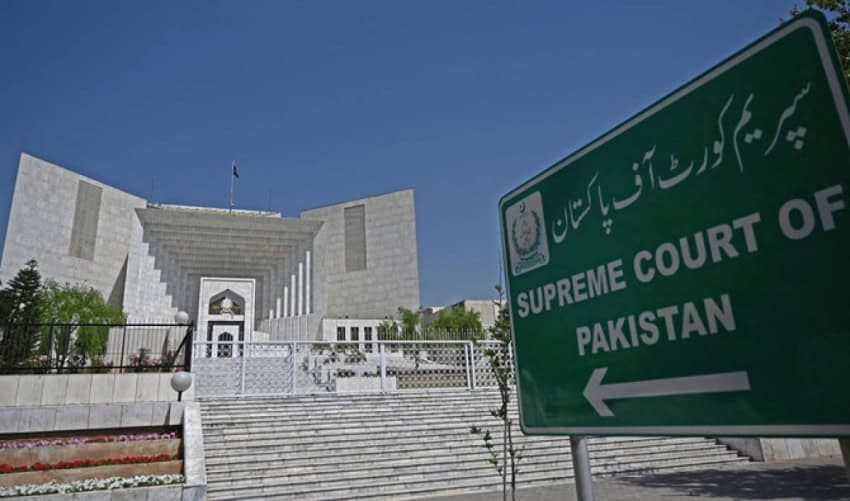ISLAMABAD – The Supreme Court on Thursday formed a new bench, led by Chief Justice of Pakistan (CJP) Qazi Faez Isa, to hear a suo motu case involving an Islamabad High Court (IHC) judges’ letter accusing intelligence agencies of interfering in judicial matters.
The court reconstituted the bench after Justice Yahya Afridi stepped away from the case earlier this month.
According to a court-issued cause list, a six-member bench led by CJP Isa and comprising Justice Syed Mansoor Ali Shah, Justice Jamal Khan Mandokhel, Justice Athar Minallah, Justice Musarrat Hilali, and Justice Naeem Akhtar Afghan will hear the matter on April 30.
On March 25, six IHC judges urged CJP Isa to convene a judicial convention to address alleged meddling by intelligence personnel in judicial processes or threats to judges that compromised the judiciary’s independence.
The six IHC judges—Justice Mohsin Akhtar Kayani, Justice Babar Sattar, Justice Arbab Muhammad Tahir, Justice Tariq Mahmood Jehangiri, Justice Sardar Ejaz Ishaq Khan, and Justice Saman Rifat Imtiaz—sent a letter to the chief justice, who also chairs the Supreme Judicial Council (SJC).
The judges requested guidance from the council on “interference” by intelligence agencies in judicial matters and the judge’s duty to report such interference or intimidation.
The Supreme Court subsequently took suo motu notice of the IHC judges’ letter on April 1 and formed a seven-member bench led by CJP Isa to address the issue.
Following the initial hearing on April 3, Justice Yahya Afridi, who was part of the larger bench, withdrew from the case taken up under Article 184(3) of the Constitution.
In his note attached to the written order after the first hearing, Justice Afridi stated that the concerns raised in the IHC judges’ letter should be addressed under the Supreme Judicial Council’s code of conduct.
Justice Afridi added that High Courts operate independently under the Constitution and that Article 184/3 should not be applied to matters concerning their independence.













